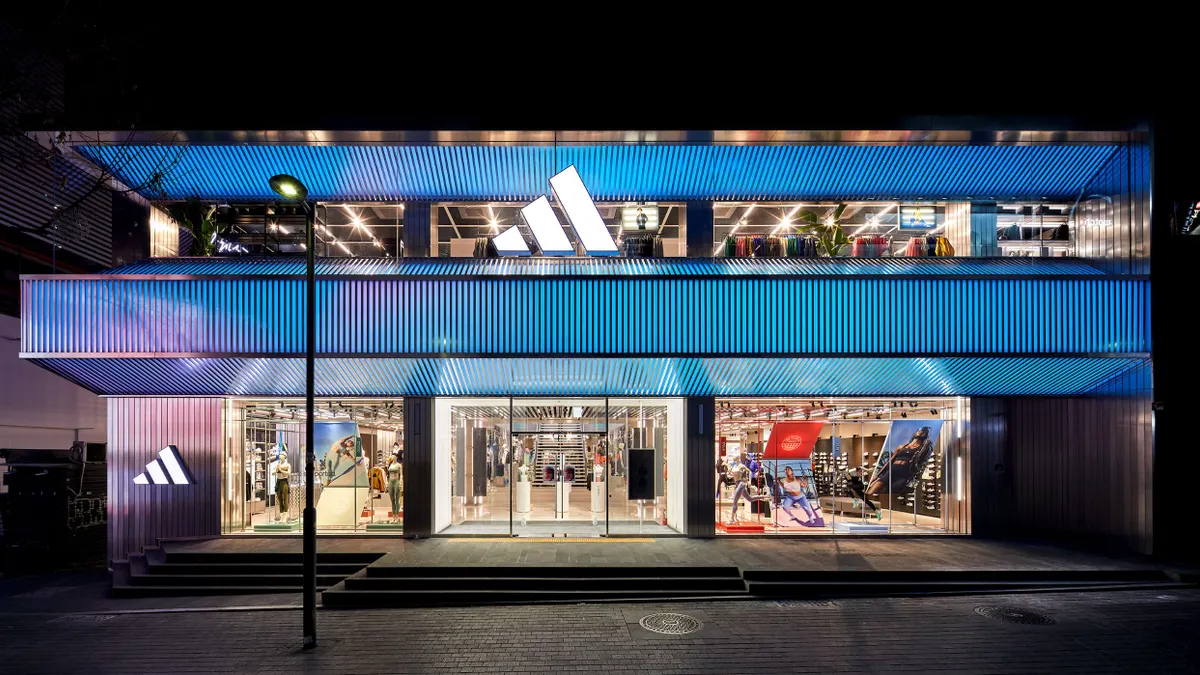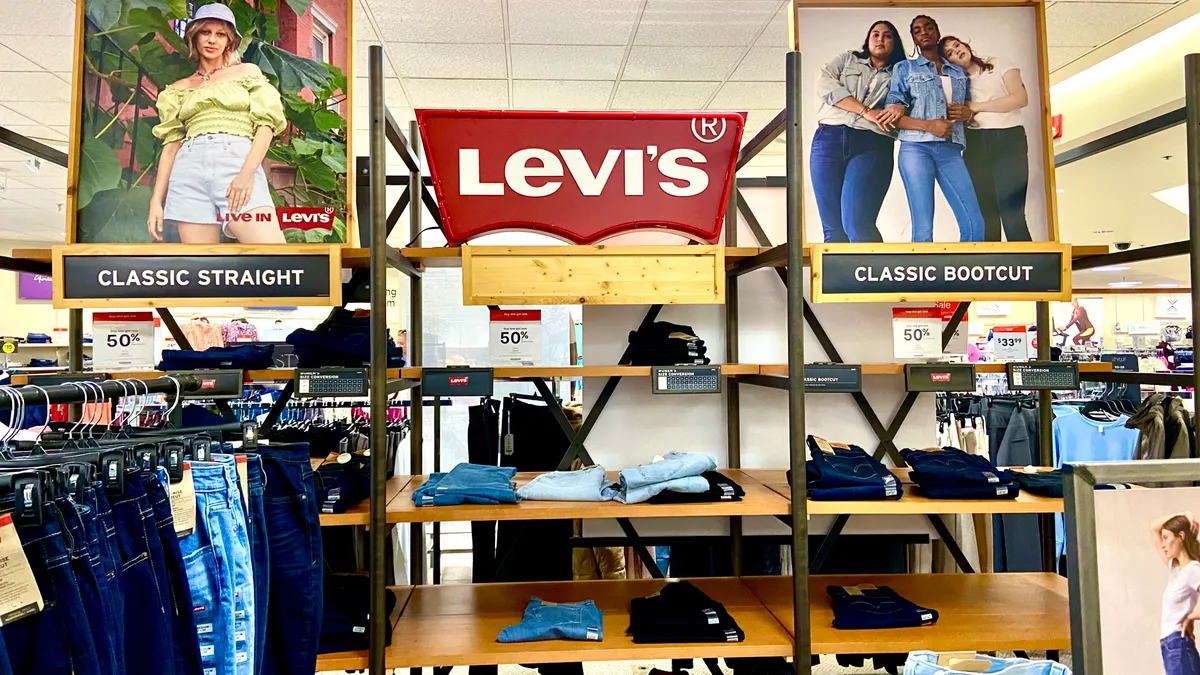L Brands shares this week were buoyed after a few analysts from different firms — Barclays, KeyBanc Capital Markets and Bank of America among them — upgraded its stock.
It's been a bit of sunshine for a stock that has steadily shed value in recent years as the company's largest brand, Victoria's Secret, has given up share and suffered falling sales in a market it nevertheless still dominates. Not helping matters was a dismal holiday. For those nine weeks, L Brands said net sales dropped to $3.91 billion from $4.07 billion last year, as comparable sales fell 3%, and margins shrank.
As it was all year, the story was one of decline in the company's signature lingerie business and growth in its smaller bath and beauty business: Victoria's Secret comps fell 12%, with traffic down in the mid-teens and margin rate "down significantly" due to increased promotions. The brand's sister line, Pink, didn't fare any better, with comps down mid-teens and margins also down significantly. But Bath & Body Works, which also suffered holiday margin declines due in part to promotions, tariffs and increased wages, did enjoy "strong customer response" to key promotions, and comps were up 9%.
For those reasons, not all analysts are that keen on the investment. Yet several have upgraded the stock in anticipation of change this year. In bumping their price target to $18 from $17 per share, for example, MKM Partners earlier this month cited their expectation of "more aggressive measures to generate value are more likely to occur in 2020," according to emailed comments.
Similarly, in a late December client note emailed to Retail Dive prior to L Brands' holiday results, Wells Fargo Senior Analyst Ike Boruchow wrote, "[W]e believe that the company may be poised for improvements in the upcoming year as they take a more critical eye to their business, and we believe they could see meaningful multiple expansion and numbers moving higher as the company makes progress towards resuming profitability."
In these notes, there's a pervasive sense of inevitable change at Victoria's Secret, which has stuck stubbornly to sexualized marketing and merchandise designs. Even after acknowledging the need for change, it has been slow to follow through. That's left American Eagle's Aerie brand, along with several online upstarts, to take share. But the optimism around L Brand's stock is predicated more on potential financial maneuvers — in particular, a spinoff of its smaller but better-performing personal care brand — than a meaningful brand pivot at Victoria's Secret.
"Splitting L Brands in two does make some sense," GlobalData Retail Managing Director Neil Saunders told Retail Dive by email, noting that the two brands have little in common. "They are essentially separate entities with separate management teams and various other functions. As such, any divorce should be relatively straightforward. A separation would also allow the value of Bath & Body Works to be maximized, as it is currently dragged down by the weak performance and prospects of its sister brand, Victoria's Secret."
MKM Managing Director Roxanne Meyer agrees. In a Jan. 10 client note, she advocated for "more aggressive actions," incuding, perhaps, more Victoria's Secret store closures and the privatization of that brand, combined with a spinoff of Bath and Body Works. "We believe a separation would be clean, with few dis-synergies," she wrote. "While [Bath and Body Works'] value would be influenced by the size of the debt burden it would inherit, we see an opportunity to more than double the value of shares."
It's not a new idea for the company. Activist firm Barrington in March began pressuring L Brands executives to contemplate ways of unlocking value, including a spinoff, and at their investors day last September, executives stated they wouldn't rule out a split. L Brands did not immediately respond to Retail Dive's request for comment on a potential spinoff.
A theme of the year?
This year has already been a banner year for spinoffs, but, notably, the headlines were around one that never happened. After facing a bombardment of negative sentiment around its plans to split off Old Navy, Gap Inc. two weeks ago threw in the towel.
But that could be an outlier, a failure based upon steady declines at Old Navy all last year. "The Old Navy spinoff didn't work because [Old Navy] has been negative for a while now," Jane Hali, CEO at Jane Hali & Associates, told Retail Dive in an email. She stated that a trend started in 2018 when VF Corp. spun off its under-performing denim businesses and continued last year when J. Crew was left behind in that company's plans for a Madewell initial public offering. "I think the idea of splitting companies to unlock the value will be a continued theme in 2020."
Not all analysts are on board with the idea for L Brands, worried that (as at J. Crew), debt would be consolidated at one brand, weighing it down.
"Investors are concerned that pressure will continue for Victoria's Secret and that the board may split up the company and leave debtholders with an over-levered Victoria's Secret," Wells Fargo Securities Senior Analyst Grant Jordan wrote in a client note last week, saying his team was otherwise "positive on the L Brands credit story. ... Our view is that the company will not pursue a spin-off that leaves a stand-alone Victoria's Secret with a significant amount of debt as this transaction is unlikely to create substantial equity value."
But the recipe may apply at L Brands. "Looking at spin-offs more generally, I think that they mostly come about when sibling brands have little in common and one is underperforming relative to the other," Saunders said. "There is economic sense in the move, mostly because it allows the value of the brands to be maximized. It can also provide breathing space for brands undergoing a reinvention. However, splitting off a brand doesn't actually cure any of the underlying problems — those still need to be worked on if reinvention is to occur."
The limits of a split
Regardless of how preoccupied L Brands may be with mulling a spinoff of some kind, no such action will absolve it of addressing the troubles at Victoria's Secret.
And that's something that so far it's seemed loathe to do, Hali warned."Yes [Bath and Body Works] is a winning formula, it could be a stock on its own with global development," she said. "However, who is going to invest in [Victoria's Secret] as a separate stock? Yes management speaks as though they know what the problem is but we have yet to see any execution that leads us to believe that there will be real change."
In fact, a spinoff of the better business could hurt the ailing one, because it could no longer lean on those superior results, according to Saunders. "If Victoria's Secret had a clear path to growth and a clear strategy to reinvent itself, this may not be so much of an issue," he said. "However, at present, it is still in the foothills of [its] reinvention... Victoria's Secret appears to understand that change is required, but it has been remarkably slow about putting that understanding into action."
Better to spin off the weaker brand, to raise capital to pay off debt or fund a turnaround, he said. But that, too, would take a plan that has yet to materialize at Victoria's Secret.























